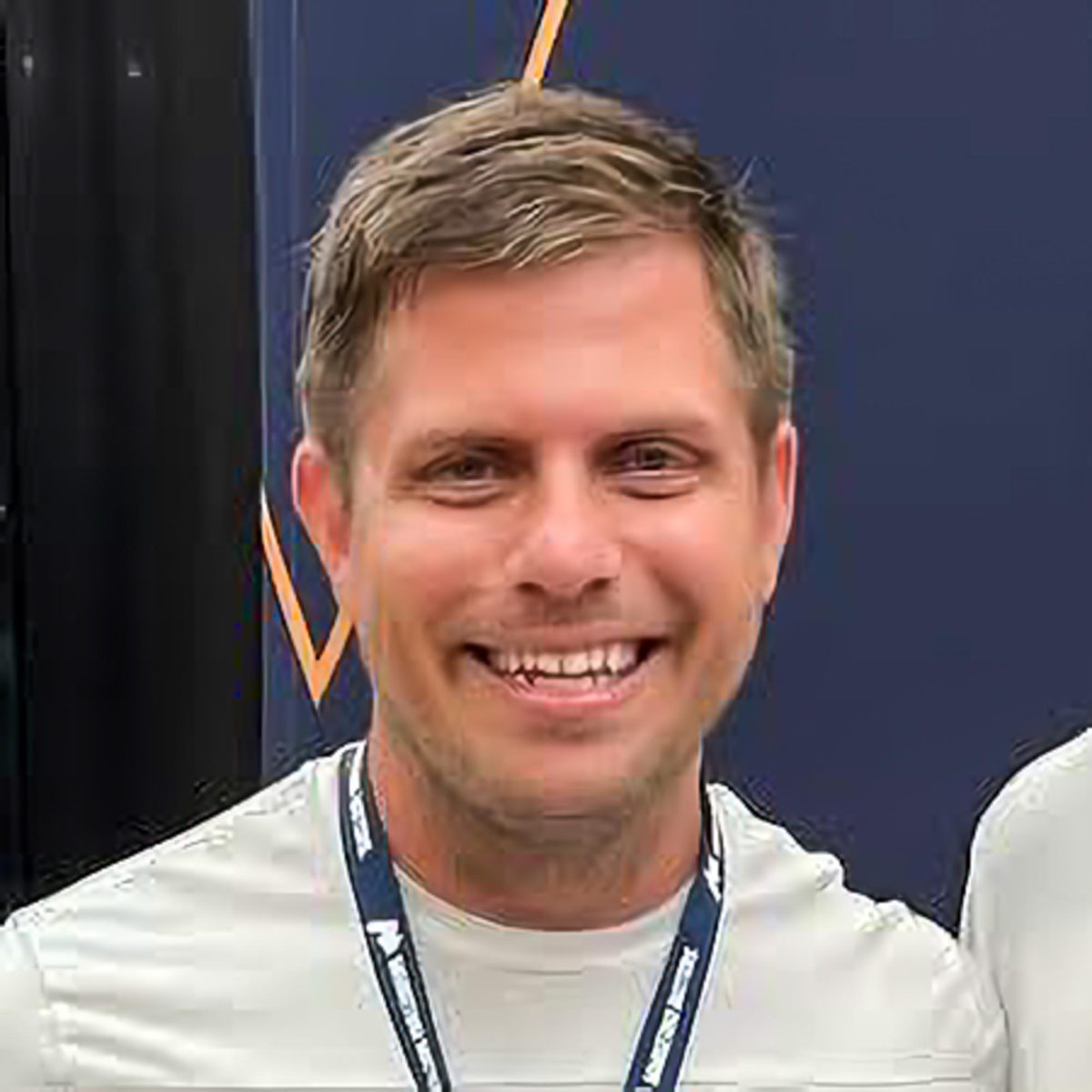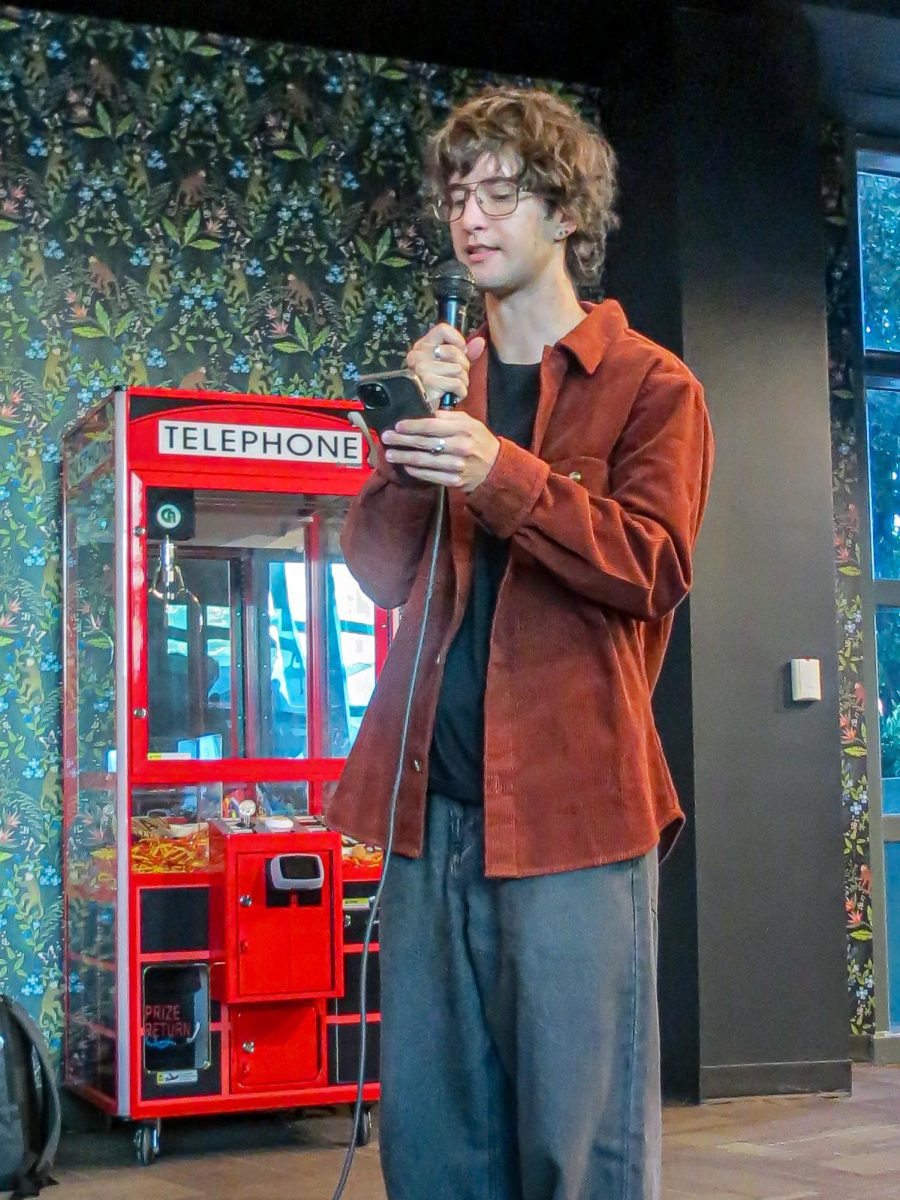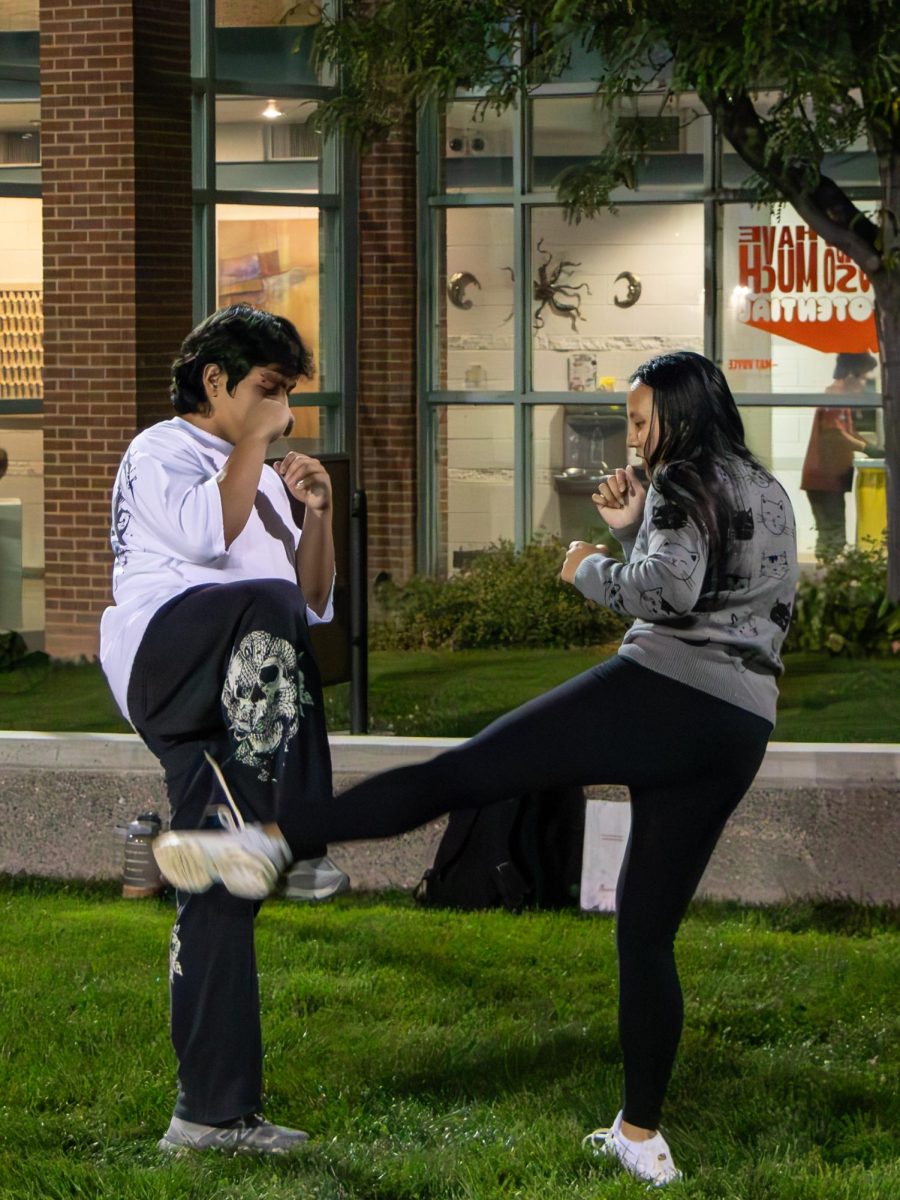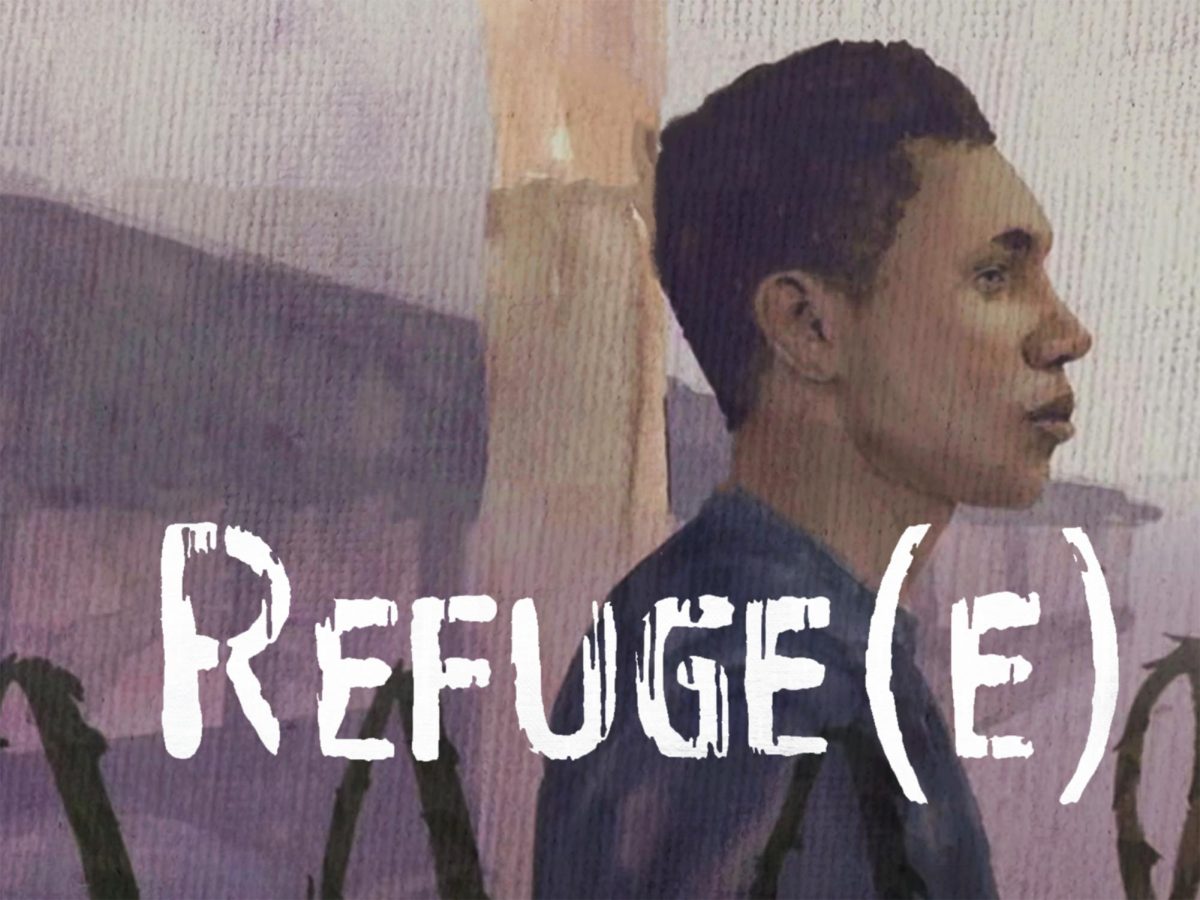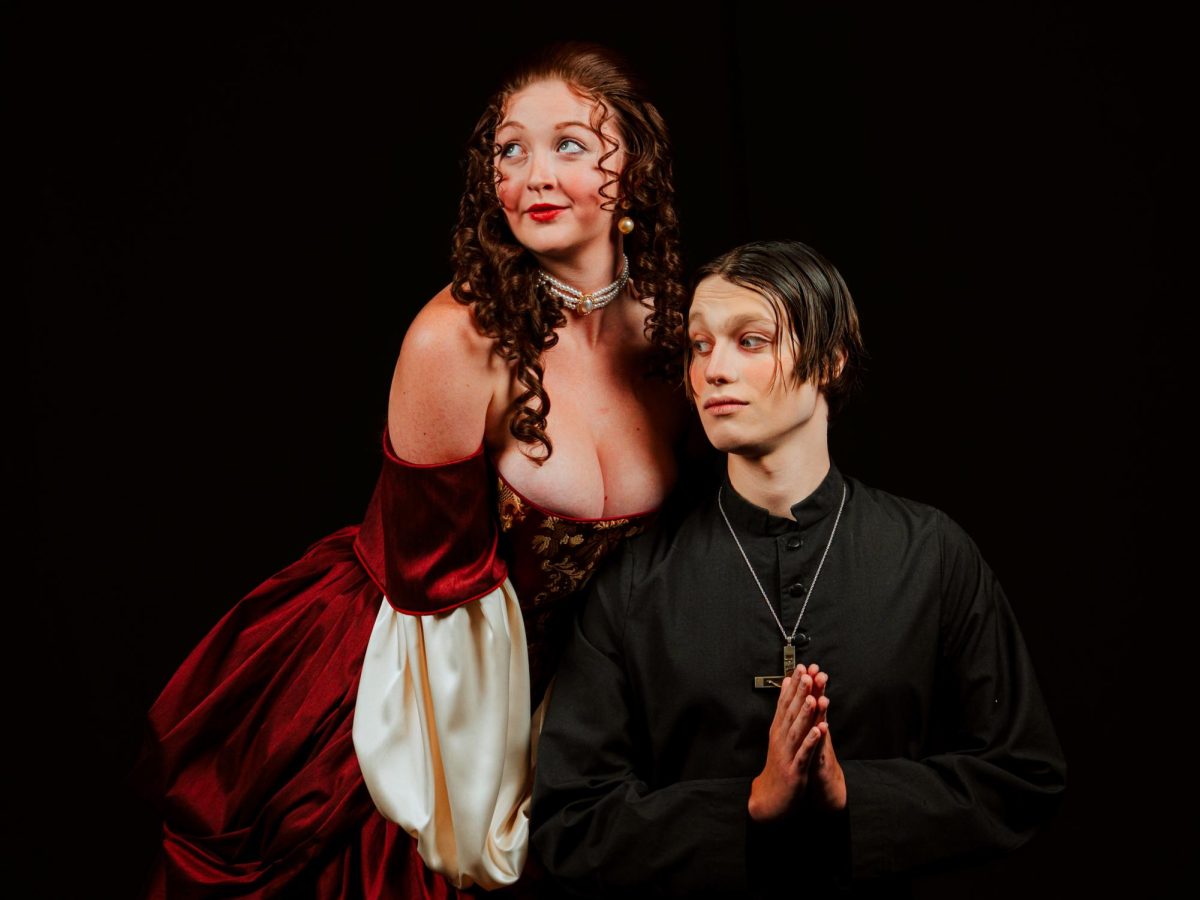Even with a smaller number of faculty compared to other institutions, Colorado Mesa University has professors coming from very different backgrounds and experiences. Some professors come to CMU from years in the professional positions and some have spent their whole careers in academia. Every professor has a different story before their position at CMU, all of them unique and exciting.
As other faculty have taught in different schools, states and countries, Julie Bruch and Carlos Baldo are two professors who have taught outside of the country.

Julie Bruch
A professor in CMU’s English department, Dr. Julie Bruch teaches classes in English, linguistics and Japanese. Bruch earned her BA in Spanish at Western Michigan University and her Masters and PhD in linguistics at the University of Kansas. She has been at Mesa since 2002 but before that she taught abroad in Spain, Puerto Rico and Japan for many years.
“I came to CMU in 2002, it was my first time living in America in a long time. I had a little bit of a culture shock here with the students because I had come from Puerto Rico, where I had been for ten years,” Bruch said. “I thought the students here were so shy and so quiet. I thought they were really bored and I didn’t know what to think about them. However, I quickly relearned the new culture here and realized that was just how students were here.”
Dr. Bruch spent ten years in Puerto Rico as a professor at the InterAmerican University of Puerto Rico. While there, she served as the Humanities Department Head and taught English as a second language, linguistics and Japanese; her first time teaching the latter.
“There were no Japanese textbooks written in Spanish, so I had to teach Japanese in Spanish without a text,” Bruch remarked.
She did all of this incredibly, while living in a very unique way.
“During the 10 years I lived in Puerto Rico, my husband and I were living on a sailboat the whole time,” Bruch commented. “Before Puerto Rico, we lived on the boat and sailed around. We lived in Venezuela for about 9 months and sailed around the islands in the Caribbean.”
Dr. Bruch, or Sensei Bruch, as her Japanese students refer to her, has also spent a lot of time in Japan. Her first job out of college was teaching English as a second language in Osaka, Japan for a year and a half. She also was awarded a Fulbright Teaching Award after two years at CMU and left to live in Tokyo for a year and teach comparative sociolinguistics at Sofia University.
“It was fantastic and very challenging. The Sofia students challenged me to do a lot of research and be on my toes all the time. I accomplished a lot of interesting research on my own just to prepare for the classes I was giving,” Bruch said. “I ended up redoing all of my linguistics courses when I returned, after seeing my students wonderful research in Japan, I changed my linguistics courses to be much more research based rather than just me teaching something and testing over. I actually don’t give linguistics exams anymore after that.”
Living and teaching abroad, Dr. Bruch has learned a great deal.
“My Fulbright year and my experiences in Puerto Rico, helped contribute to my abilities as a teacher from very different angles and perspectives,” Bruch said. “The ten years I was teaching in Puerto Rico gave me a lot of personal competencies and skills for dealing with students since the Puerto Rican culture is so affectionate. I learned to interact with students on a more caring level. It is very much like family there.”
Bruch brings this back to her classrooms at CMU, especially her Japanese classes where she fosters a very close-knit group of students through her teaching style.
Not surprisingly, university students are quite different in other cultures and countries. According to Bruch, the students and people of Puerto Rico despite being more impoverished than many others had “truly incredible humanity,” while the students in Japan were extremely respectful and knowledgeable.
“The people I worked with in Puerto Rico, most of them were on federal Pell grants because it was easier to be on a grant and go to school than to find a job in a difficult economy,” Bruch said. “They usually didn’t have a very strong background in the basic elementary knowledge so I had to teach not assuming anything about their prior education, which was very different from the Japanese students who were highly educated and cultured.”
“In Japan, the teaching style is much more traditional. The students there are used to just being in class and listening, not being involved. They might fall asleep or they might not even go to class. They usually take just one exam at the end of the semester and that’s their grade for the class,” Bruch remarks. “Japanese students are really challenged in high school because they have really difficult entrance exams just to get into university. However, once they get into college, students are kind of on vacation because it doesn’t matter as much anymore or take as much work to graduate from the university as it did high school.”
Outside of the classroom experiences in another culture can be really great or really weird.
“There are so many funny things that happen when you live in another culture. In Japan, I call them Japan moments. For instance, I was once walking in the city and a stranger came up to me and tried to sell me mush-prunes for constipation, just funny things like that,” Bruch recalls.
After such a wonderful experience teaching abroad what makes a professor want to come back to the US and teach at CMU?
“In Puerto Rico, living on our boat we got hit by hurricanes every year. After hurricane George crashed our boat up onto the shore, we decided we were really tired of living through hurricanes and started looking at moving.” Bruch said. “I also got tired of living in the tropics, believe it or not, especially the mosquitos, and I missed the four seasons. So, between the hurricanes, the mosquitos and the Puerto Rican crime, we decided to change.”
Bruch said she only had a few top choices for her next job.
“I only applied to two places because I had a good job and only wanted to work at places I would truly love to be at. I saw CMU was a smaller size teaching university in a beautiful place. When I got the interview I was really excited and new I wanted to spend a long time here,” Bruch said.
Dr. Julie Bruch has also written her own Japanese textbook, which she sells to students for no-profit, she can play many instruments, including several Japanese ones, and she has assisted with translating many books, including over 100 haiku and a Japanese book in braille. However, her experiences abroad are some of the most important to her.
“Living abroad is one of the best experiences anyone can have. It sounds a little trivial since almost everyone knows that but in real life it is not a trivial thing. It is a truly life changing experience and you learn so much about people. I always learn as much from my students as I teach, maybe more, but in the foreign countries that is especially true.”
Dr. Carlos Baldo
[media-credit name=”Courtesy of CMU” align=”alignright” width=”300″] [/media-credit]
[/media-credit]
Carlos Baldo, a professor of Business Administration at CMU, while born in San Antonia Texas, has spent more than 20 years of his life in Venezuela and Spain. He earned his bachelor’s from the Universidad Fermín Toro, his MBA from Lynn University and his Masters and PhD from Universidad Pablo de Olavide of Seville, Spain.
Dr. Baldo has taught at CMU for only a few months now but before that he held positions at Southwestern Oklahoma State University, Aquinas College in Michigan, Clarion University of Pennsylvania, Universidad Fermín Toro and Universidad Centro Occidental Lisandro Alvarado (Venezuela), according to his faculty bio. In addition, before re-entering academia Dr. Baldo spent more than twelve years working in the private sector.
Teaching at these many different institutions, Baldo has enjoyed experiences with many different students, from rural and urban areas, first generation and long-time college educated families, and many others.
“Students at every university were different in very different ways and it was a good experience to see that,” Dr. Baldo remarks. “When I was teaching in Oklahoma we had 200 Saudi Arabian students with their family move to the very conservative small town. That was a very interesting experience for me and for the students to learn about a new culture. It was a big thing in the town of 10,000.”
Baldo is also very unique because not only did he teach in a foreign country he also earned his degrees in other countries.
“In Europe, a bachelors takes 180 credits and there are no general education requirements. From my first year I was taking accounting and business, classes in my major. Students can take classes that they want to,” according to Dr. Baldo.
During his time in Venezuela, Dr. Baldo had the opportunity to experience life as a professor there.
“Professors in that country, and in Europe, have a lot less oversight and quality assurance on them compared to universities in the states. Professors [in other countries] can more or less teach how they want to, but here there are a lot more guidelines and evaluations on professors to do a good job,” Dr. Baldo said. “It is overall a lot more work for us, but I think it is very good for the students here.”
Dr. Baldo chose to come to CMU because of their developing business programs and is happy about his decision.
“I am very happy to be at CMU now and I hope to be here a very long time,” Baldo says.



